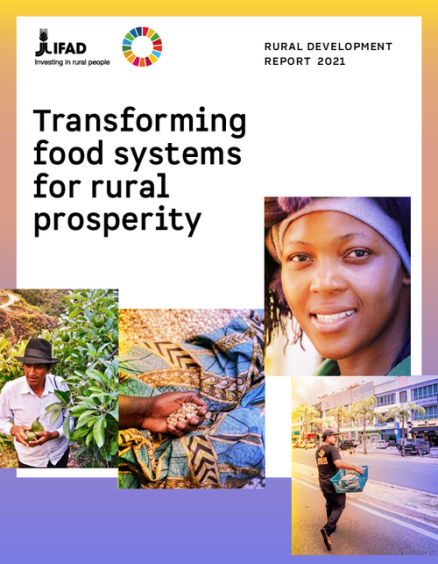Transforming Food Systems for Rural Prosperity Report

Disclaimer: No Copyright infringement intended.
Context
- The report Transforming Food Systems for Rural Prosperity by United Nations International Fund for Agricultural Development (IFAD) called for investment in rural farms and local small- and medium-size enterprises.
Challenges observed
- The world’s food systems are riddled with huge and unfair contradiction.
- There are 800 million hungry people and yet high obesity rates.
- Nutritious diets are expensive yet many small-scale farmers are poor.
- Current food growing practices are not good for our environment. It is clear that we need a revolution.
- Over the past 70 years, a focus on industrial farming and producing more calories at low cost has been accompanied by growing malnutrition, increased food waste and a high environmental cost.
- Food systems are responsible for 37 per cent of greenhouse gas emissions and are also highly vulnerable to a changing climate.
Recommendations
- The report recommended concrete actions to be taken by governments:
- Rewarding farmers for ecosystem services such as maintaining healthy soil and regulating pests and incentives for nature-based practices and local, healthy diet
- Making available innovations such as nature-based solutions, agro-ecology and affordable digital technologies to boost rural small-scale famers’ production. The measures will also enable the cultivators to be climate-resilient employing low-carbon and sustainable techniques
- Developing and focussing on pricing systems that reflect the full and true cost of production
- Shifting food systems towards circular resource use for sustainability and resilience
- The report stressed on the importance of government investment in rural farms and local small- and medium-size enterprises that support activities after the farm gate, such as storing, processing, marketing and food distribution.
- Small-scale family farmers are still the foundation of food supply across all low- and middle-income countries.
- They play a critical role in reducing rural poverty and ensuring national food and nutrition security.
- It called for investing in and creating conditions for productive, economically viable and environmentally sustainable small-scale family farming.
- A majority of people in rural areas earn their livelihoods from working in small-scale agriculture, which is a vital source of national and global food. In fact, farms of up to two hectares produce 31 per cent of the world’s food on less than 11 per cent of the farmland.
- The report called for making food markets accessible to villagers and on fair terms by rethinking the present concentration of power within food systems.
IFAD
- The International Fund for Agricultural Development is an international financial institution and a specialised agency of the United Nations that works to address poverty and hunger in rural areas of developing countries.
- It is the only multilateral development organization that focuses solely on rural economies and food security.
- Headquartered in Rome, Italy, IFAD funds and sponsors initiatives that -
- improve land and water management,
- develop rural infrastructure,
- train and educate farmers in more efficient technologies,
- build up resilience against climate change,
- enhancing market accessibility, and more.
- IFAD has 177 member states and works in partnership with the Organization of the Petroleum Exporting Countries (OPEC) and members of the Organisation for Economic Co-operation and Development (OECD).
- Foundation in 1977 it is one of the major outcomes of the 1974 World Food Conference.
- It is a member of the United Nations Development Group.
- The President of the IFAD is elected for a four-year term.



1.png)
